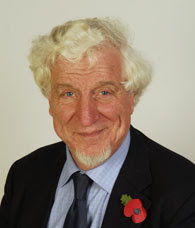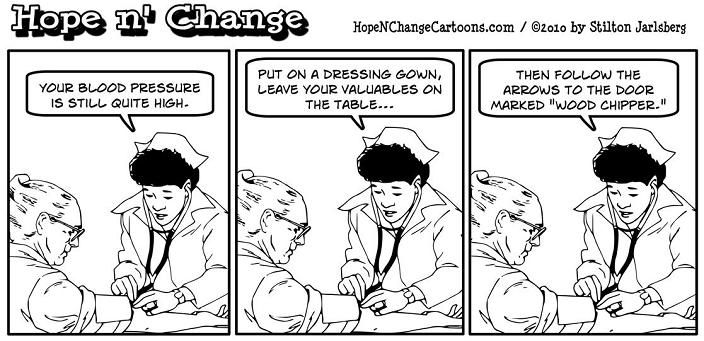July 16, 2012 (LifeSiteNews.com) – The courts should not interfere with doctors who want to dehydrate to death incapacitated patients who are a drain on scarce financial resources, according to an editorial in this week’s edition of the prestigious British Medical Journal.
Raanan Gillon, emeritus professor of medical ethics and former chairman of the Institute of Medical Ethics governing body, wrote that a ruling last year by the High Court against dehydrating an incapacitated patient to death was “profoundly disturbing” because it took the life and death decision-making power out of the hands of doctors and required that the principle of the “sanctity of life” take precedence over other considerations.
The judgment, he said, “threaten[s] to skew the delivery of severely resource-limited healthcare services towards providing non-beneficial or minimally beneficial life prolonging treatments including artificial nutrition and hydration to thousands of severely demented patients whose families and friends believe they would not have wanted such treatment”.

He complained that the ruling required that, under the “stringent” Mental Capacity Act, in order to remove “life prolonging treatment” like a feeding and hydration tube, the patient himself must have left a legally binding “advance decision” in writing, and that previous casual or unrecorded statements to relatives were not sufficient grounds.
The editorial, titled, “Sanctity of life law has gone too far,” said that unless it is overturned, the court ruling “will gradually and detrimentally distort healthcare provision, healthcare values, and common sense.”
Its logical implication, Gillon wrote, is that “doctors should no longer decide, in consultation with those who know their incapacitated patients, whether life prolonging treatment including artificial nutrition and hydration will be in their patients’ best interests.”
Furthermore, he said, the ruling logically means that those patients in “a higher than minimal state of consciousness must be similarly protected”.
The court ruling in question was that in the M Case, in which the family of a 52-year-old woman who was found to be in a “minimally conscious state” and who was “otherwise clinically stable,” were petitioning the court to have her feeding and hydration tube removed. The Court of Protection ruled that all patients in such a state must be referred individually to the Court of Protection if “life prolonging treatment” by artificial nutrition and hydration is to be withheld or withdrawn.
Mr. Justice Baker said in the September 2011 decision, “The factor which does carry substantial weight, in my judgment, is the preservation of life. Although not an absolute rule, the law regards the preservation of life as a fundamental principle.”
Justice Baker wrote that the courts should not “attach significant weight” to the patient’s previous statements unless they had been expressed in a way that could stand up to legal scrutiny. As in the case of Terri Schiavo in the U.S., M’s family had argued that her alleged previous statements indicated that she would not want to be dependent on such care.
Baker responded to this by ruling, “[Given] the importance of the sanctity of life, and the fatal consequences of withdrawing treatment, and the absence of an advance decision that complied with the requirements previously specified by the common law and now under statute, it would in my judgment be wrong to attach significant weight to those statements made prior to her collapse.”
Anthony Ozimic, communications manager for the Society for the Protection of Unborn Children, said that the ideology being espoused by Gillon and the British Medical Journal is indistinguishable from the materialist utilitarian ethic that led to the elimination of the “unfit” by eugenicists in the early 20th century, including in pre-World War II Germany.
“What is particularly disturbing about Professor Gillon’s opinions is that he is judging certain disabled people as having lives unworthy of life, balancing those lives against the needs of other patients and seeking to justify killing the disabled on the grounds of rationing,” Ozimic told LifeSiteNews.com.
“Such a utilitarian calculus is in substance no difference to the calculus made during World War II by the German authorities: that the disabled should die so that wounded soldiers could live. In any case, assisted food and fluids are basic nursing care, not futile medical treatments.”
As shocking as such pronouncements are to the general public, the idea that disabled patients should be euthanized, either directly or by the removal of food and hydration, is actually a mainstream of thought among many of the western world’s medical ethicists. Gillon himself is a major voice in the field as a former editor of the Journal of Medical Ethics and the author of the 1985 book “Philosophical Medical Ethics”.
Classical medical ethics, that held as paramount the principle “Do no harm,” has in large part been set aside in favor of the new utilitarian-based Bioethics, a formal or “normative” branch of ethical philosophy that seeks “the greatest good for the greatest number” according to the “principles” of “justice, beneficence and autonomy”.



